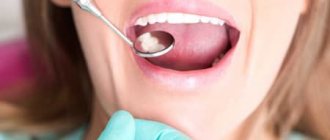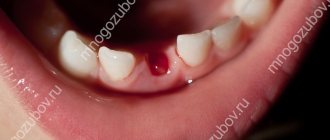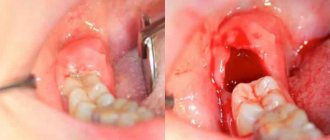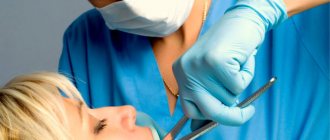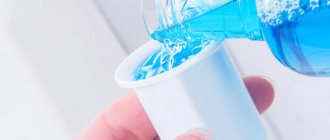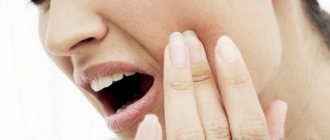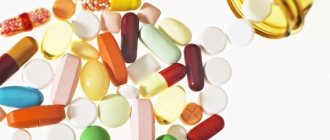Is it possible to drink alcohol after tooth extraction?
There are different ways to remove a tooth. Sometimes the entire procedure takes a few minutes, and sometimes the dentist spends hours removing bone fragments from the gums. And also, all patients have different pain thresholds: for some, one injection of local anesthesia is enough, others require general anesthesia. Therefore, the doctor gives recommendations to each individual individually. But there are a few general rules:
- Do not eat or drink anything for 2-3 hours after the tooth has been removed.
- For the next 12 hours, you can only drink drinks at room temperature.
- You cannot drink for as long as the surgeon says.
Why is alcohol prohibited?
Ethanol dilates blood vessels and increases blood circulation, which is very dangerous if there is an open wound in the mouth. Drinking can cause heavy bleeding that will be difficult to stop.
After removal, a blood clot forms in the wound, which protects it from infection. With increased bleeding, it can be washed out, then inflammation cannot be avoided. As a result - tugging pain, swelling, suppuration, increased body temperature. You will have to go to the dentist again, clean out the pus, open the gums, take antibiotics.
In addition, ethanol can provoke an allergic reaction to the painkiller. No one can predict it, because each body reacts to pain blockers in its own way. The most common manifestations: skin rash, itching, swelling, difficulty breathing. Even anaphylactic shock is possible.
That is why, in order to reduce the risk of complications, dentists strongly do not recommend that patients drink alcohol after a tooth has been pulled out.
How do the first hours pass after vomiting?
Immediately after extraction, the doctor will perform an antiseptic treatment of the open wound surface.
A gauze swab (turunda) soaked in a drug with a bactericidal and hemostatic effect will be placed in the hole, which will prevent excessive bleeding. Luna immediately after extraction
You can remove the turunda from your mouth in 15–30 minutes. During this entire time, it is better to stay in a dental clinic so that in case of side effects due to blood loss and the action of anesthetics, you can receive qualified medical care in a timely manner. You should tell your doctor about any unpleasant sensations, for example, if it hurts to swallow, there is too much bleeding, or it is difficult to open your mouth. The doctor will be able to quickly assess the patient’s condition and give him the necessary medicine.
Within half an hour after the tooth root is removed from the socket, a blood clot forms in the wound, which counteracts infection. If it is damaged, the wound will become inflamed. Therefore, you should be extremely careful not to rinse or move the clot with your tongue.
What to do with a gauze pad
A tampon soaked in blood is an excellent breeding ground for infection. And the longer you keep it in the mouth, the greater the risk of developing inflammation in the socket of the extracted tooth. If you still have a gauze swab on your socket, you need to remove it urgently. It is advisable to do this without jerking and not strictly vertically, but sideways (so as not to pull out the blood clot from the hole along with the tampon).
An exception may be a situation where the hole is still being touched up - in this case, the gauze swab can be held for a little longer. But it’s best to spit out this old gauze swab soaked in saliva and blood, make a new one from a sterile bandage, and place it on top of the hole (biting firmly).
Important: saliva at first may normally turn pink due to the secretion of ichor (do not confuse this with bleeding). At the same time, it is not clear why many patients stop swallowing saliva and accumulate it in the oral cavity. There is absolutely no need to do the latter; saliva can be swallowed as usual.
How soon can you eat after tooth extraction?
Most often, patients are interested in when they can eat after tooth extraction and what food is best to eat. You can safely eat after 2 hours, but on the same side (where the tooth was removed) it is not advisable to chew anything dense or hard in the first days after extraction. This is necessary in order not to injure the fresh blood clot in the socket of the extracted tooth.
You can drink water immediately after tooth extraction. As for food, if you still can’t wait 2 hours, then you can absolutely safely drink a glass of kefir or eat yogurt right away. In general, there is no ban on any specific foods; it is only necessary that the prepared food be soft in the first days (for example, if there is meat, then it must be cured).
Apply cold to prevent swelling
As soon as you come home, your first actions are to take ice or a piece of frozen meat from the freezer, wrap it in a towel and apply it to your cheek in the projection of the extracted tooth. This is necessary to avoid or reduce possible swelling of the soft tissues of the face that may develop (especially if the removal was difficult). It is necessary to hold the ice 3-4 times for 5 minutes, with an interval of 5-10 minutes between each approach. It makes sense to keep ice only in the first hours after removal, then it is useless. But heating and applying heat is strictly forbidden, because... In this case, suppuration is guaranteed.
Important: if you want to avoid the development of swelling of the soft tissues of the face as much as possible, then in addition to using cold, be sure to take antihistamines (anti-allergic) medications in the first 2-3 days after removal. This group of drugs also has a good anti-edematous effect. Suprastin is especially suitable: 1 tablet per day before bed (for 2-3 days).
Is it possible to smoke after tooth extraction?
It is not advisable to smoke after tooth extraction for at least 3 hours, but it is better, if possible, to abstain from smoking altogether in the first 1-2 days. This is due to the fact that nicotine causes a sharp spasm of blood vessels in the mucous membrane and surface layers of the bone, which will not have a favorable effect on the healing of the wound surface.
This is interesting: Herculite XRV Ultra
How long should you drink alcohol?
The period during which the consumption of strong drinks is prohibited is determined individually. Before starting to drink, the patient must make sure that the wound has healed and no longer bleeds due to accidental mechanical damage. The gums are healthy, there is no swelling, and there is no pain when pressed. There is no putrid, purulent taste in the mouth.
How long after tooth extraction can you drink alcohol?
To imagine the effects of different types of alcohol on the body, you need to study their characteristics in more detail.
Vodka and other strong drinks
For example, alcohol stronger than 40 degrees quickly gets you drunk, but takes a long time to dissipate. This is especially true for cognac: it contains tannins that slow down the sobering up process.
You can drink strong alcohol only when the patient is confident in his full recovery after the procedure. After all, if the operation was unsuccessful and an infection got into the hole, the patient will have to return to the dentist again. And being drunk will only aggravate the complications that arise.
Wine, beer
Alcoholic drinks with a strength of 5 to 12 revolutions are not so harmful. They give a slight intoxication that goes away after a few hours. But in the case of carbonated liquids, such as champagne and beer, the likelihood of infection in the wound increases. Carbon dioxide in combination with sugar has an irritating effect on the mucous membrane, healing is delayed. You can use the foam only after a crust has formed on the damaged area.
Soft drinks
Soft drinks are produced from ordinary wine or beer by evaporating the alcohol. But the technology is still imperfect, so some ethanol still remains (from 0.5 to 1.5%).
An ordinary healthy person will not even feel such a dose, but after anesthesia it is better not to carry out such experiments.
It is better to wait until at least a day has passed after the procedure: if the patient is not bothered by anything, then he can take a little “nulevka”.
Wound healing and foam
- It is no secret that the gums are damaged during tooth extraction. In advanced cases, the specialist has to make an incision, after which he literally removes the tooth from the soft tissues and releases the roots.
- With all this, it is difficult to say that the human oral cavity boasts an ideal environment for proper wound healing. Due to high humidity, the presence of alkali and acids, as well as food debris, the wound takes a long time to heal.
- It is possible that under such conditions the socket will become inflamed, the gums will swell, bleeding will intensify, and pus will appear. To eliminate such aspects, you need to contact your dentist so that he can put the gums in order.
- For 4 hours following the procedure, the dentist recommends keeping a sterile swab directly on the wound area. It is pressed against the teeth so that the escaping blood is absorbed and a blood clot is formed to protect against bacteria. If the clot breaks or comes out of the mouth, the blood will begin to flow even more.
We invite you to familiarize yourself with Metrogyl Denta - indications for dental gel, how to apply, side effects and analogues
If a wisdom tooth has been removed
The same rules apply for wisdom teeth as for everyone else. But after the operation you need to be especially attentive to your well-being: the figure eights are deep in the mouth, so the patient will not be able to independently examine the wound if necessary . When swallowing, food particles can get into the hole and cause inflammation. Alcohol in this case will only worsen the condition.
A patient with a removed figure eight should wait until the skin on the gum is completely restored - only then is he allowed to drink. This process usually takes 4-5 weeks. You need to remember this when planning a visit to the dentist, and do not schedule the procedure on the eve of major holidays or important events.
Contraindications after surgery
Tooth extraction is a standard and common operation, after which complications rarely occur. The main rule here is to follow the recommendations given by the attending physician.
The specialist is obliged to remind about the temporary restriction of the use of alcohol-containing products. In addition, after a tooth is removed, the wound begins to heal immediately.
During the healing process, you should follow a few simple rules:
- The tampon that the doctor installs must be removed after half an hour. If you keep it for a longer period of time, then active reproduction of pathogenic microorganisms will begin;
- For the first 24 hours after surgery, you should avoid visiting the swimming pool, bathhouse, and sauna. Reason – hot water can cause bleeding;
- You should not rinse your mouth immediately after visiting the doctor. The wound is just beginning to heal, so exposure to water should be avoided;
- It is not recommended to eat for the first few hours. Pieces of food can get into the tooth site, causing infection, which is fraught with serious complications;
- The doctor prescribes medicinal baths and prescribes pain suppressants. The advice of a specialist should be followed strictly.
We suggest you familiarize yourself with what a bitter taste in the mouth and heaviness in the right hypochondrium may indicate
After surgery, the patient should not engage in heavy physical labor. Another rule concerns alcohol consumption. Hot products affect blood pressure. It is also the basis for complications and bleeding.
Therefore, after undergoing surgery, you should take care of yourself, calm down, gain strength and energy. Otherwise, you may encounter increased temperature, swelling, suppuration, and pain. In addition, alcohol is not a disinfectant.
It only causes harm!
